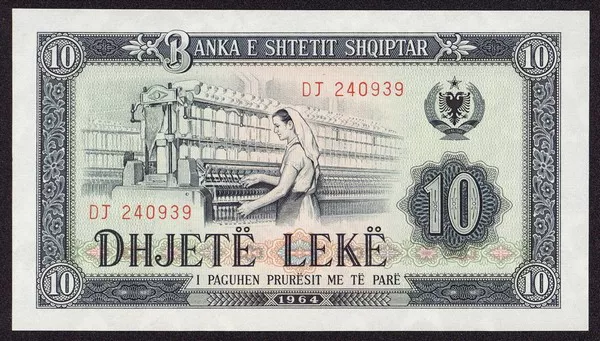Albania, nestled in the heart of the Balkans, boasts a rich history and a unique cultural identity. As we delve into the economic facets of this nation, a pertinent question arises: What do Albanians use for money? In this article, we will embark on a comprehensive exploration of the currency landscape in Albania, shedding light on the historical evolution, current practices, and future prospects of the monetary instruments that play a pivotal role in the everyday transactions of its citizens.
Historical Overview:
To understand the present, one must first journey into the past. Albania, with its roots tracing back to the ancient Illyrians, has a fascinating monetary history. In the early 20th century, during a period of political upheaval, Albania witnessed a succession of currencies, including the French franc, Italian lira, and the Serbian dinar. However, in 1926, the Albanian lek emerged as an independent currency, establishing its dominance and resilience over the decades.
The Albanian Lek:
The lek, represented by the symbol “L” and the ISO code “ALL,” is the official currency of Albania. Its name is derived from the Albanian word “leku,” meaning “pound.” The Central Bank of Albania, known as the Banka e Shqipërisë, oversees the issuance and regulation of the lek.
The lek has undergone various transformations since its introduction. Initially, it was pegged to other major currencies, such as the U.S. dollar and the Italian lira. However, Albania adopted a floating exchange rate system in the early 1990s, contributing to the stabilization of its economy.
Denominations and Design:
The lek is subdivided into 100 qintars, and its banknotes and coins reflect the nation’s history, culture, and notable figures. Banknotes feature prominent figures like Gjergj Kastrioti Skanderbeg, the national hero, and Mother Teresa, the Nobel laureate born of Albanian descent. Coins, on the other hand, depict motifs representing aspects of Albania’s rich heritage.
Foreign Exchange:
While the lek is the official currency, the country’s openness to international trade and tourism has led to a widespread acceptance of foreign currencies. Major currencies, such as the euro and the U.S. dollar, are readily accepted in tourist areas and larger cities. This flexibility is advantageous for foreign visitors and investors, contributing to Albania’s integration into the global economic landscape.
Digital Transformation:
In recent years, Albania, like many other nations, has witnessed a surge in digital financial transactions. Mobile banking, online payments, and digital wallets have become increasingly popular, offering convenience and efficiency. The Central Bank of Albania has also taken steps to encourage the adoption of digital financial services, promoting financial inclusion and modernizing the country’s monetary infrastructure.
Challenges and Opportunities:
Despite the progress made in Albania’s monetary landscape, challenges persist. The informality of the economy, a historical reliance on cash transactions, and concerns about cybersecurity present hurdles to the seamless integration of digital financial services. However, these challenges also represent opportunities for innovation and collaboration between public and private sectors to foster a more resilient and inclusive financial ecosystem.
Government Initiatives:
Recognizing the importance of a robust financial system, the Albanian government has implemented initiatives to address challenges and promote economic stability. Collaborative efforts with international organizations and financial institutions aim to enhance regulatory frameworks, improve financial literacy, and create an environment conducive to sustainable economic growth.
See Also: Albanian Lek (ALL) Currency: History, Symbol, Code & Denominations
Conclusion:
In conclusion, Albania’s monetary landscape reflects a blend of historical legacy and contemporary dynamics. The lek, with its storied past, remains the cornerstone of Albania’s financial system. The nation’s openness to foreign currencies and its embrace of digital financial services underscore its adaptability in a rapidly evolving global economy.
As Albania continues to navigate the complexities of the modern financial world, opportunities for growth and innovation abound. By leveraging its rich history, embracing technological advancements, and fostering collaboration, Albania is poised to carve a distinct path in the realm of international finance, ensuring a prosperous future for its citizens and businesses alike.


